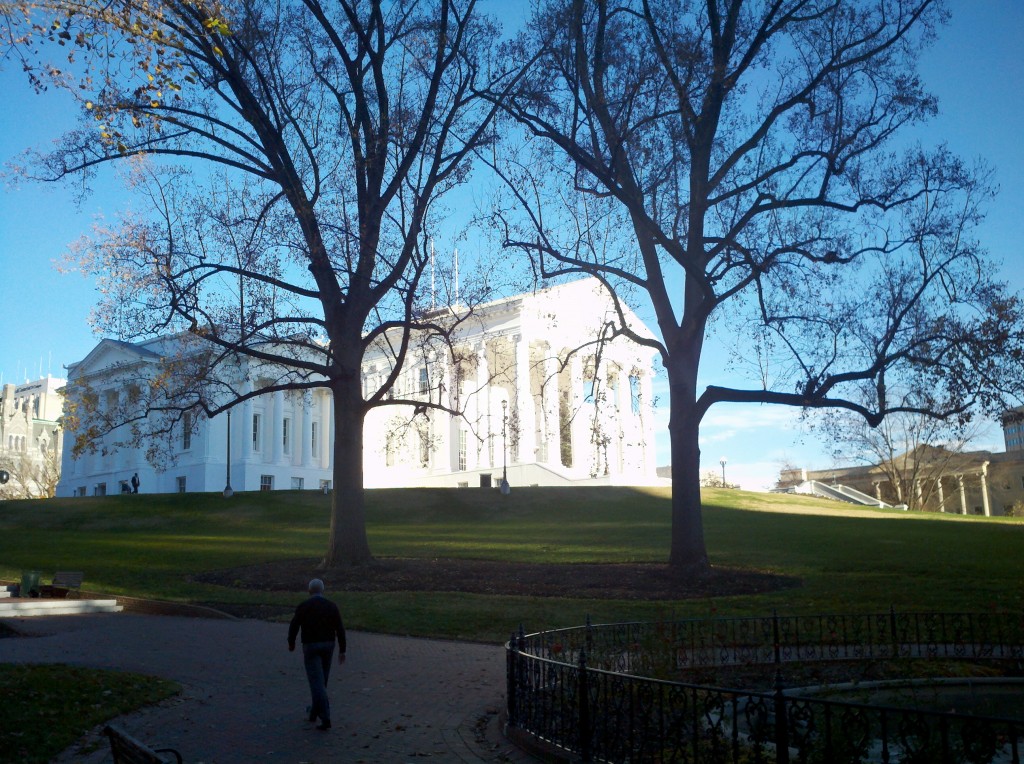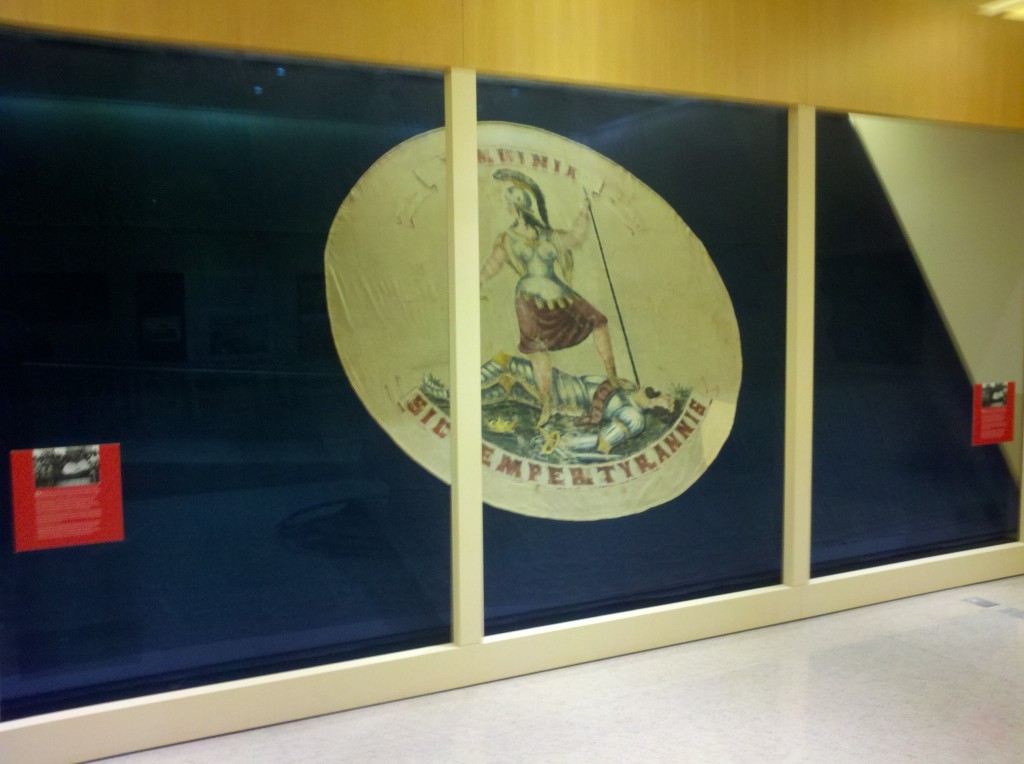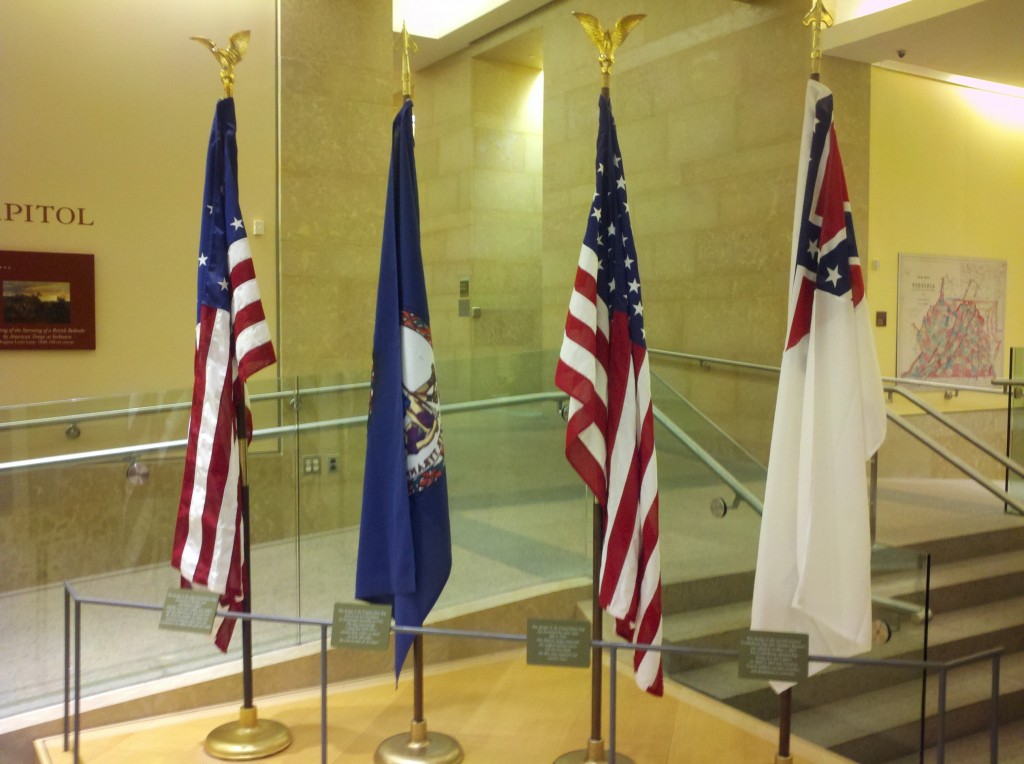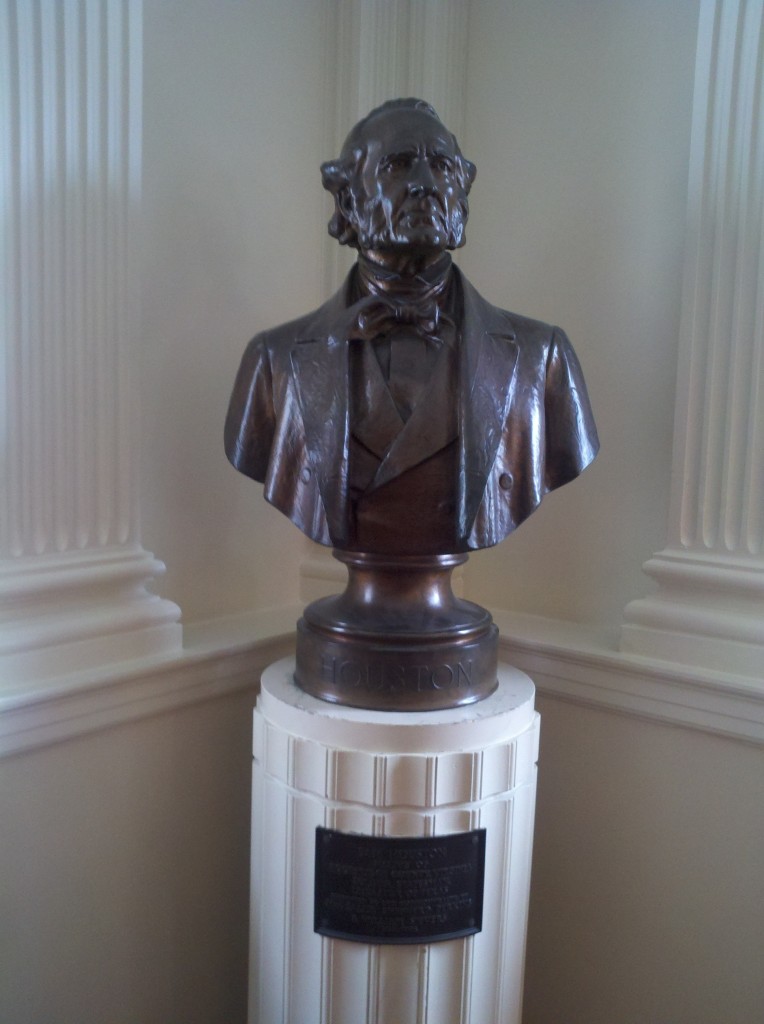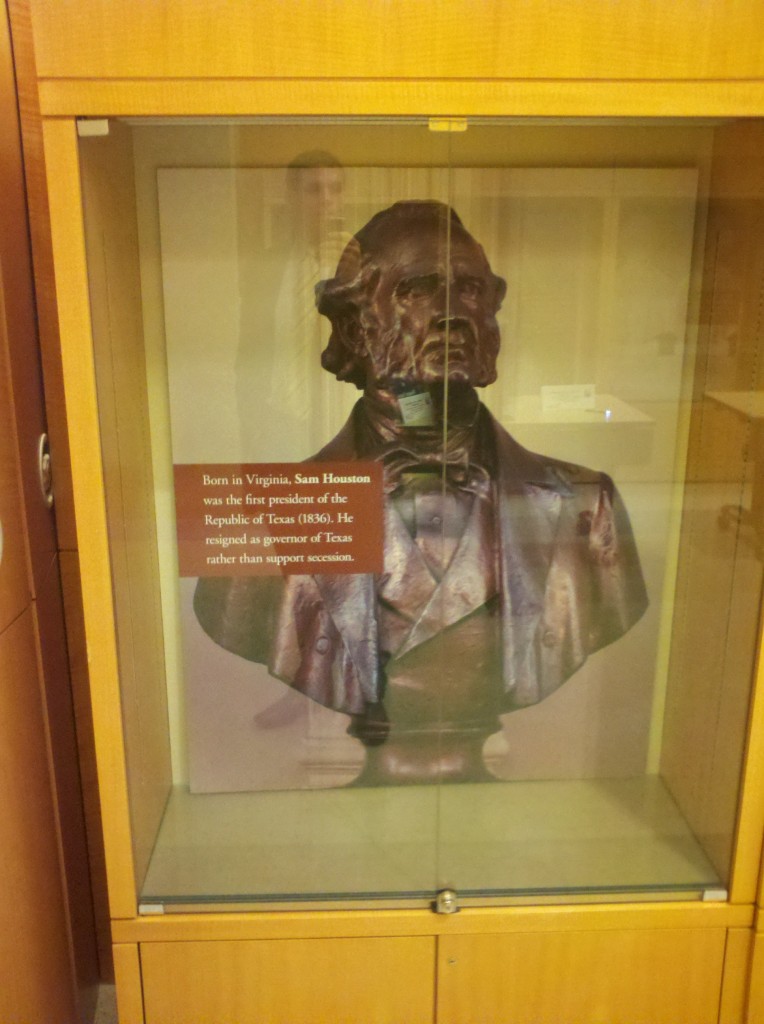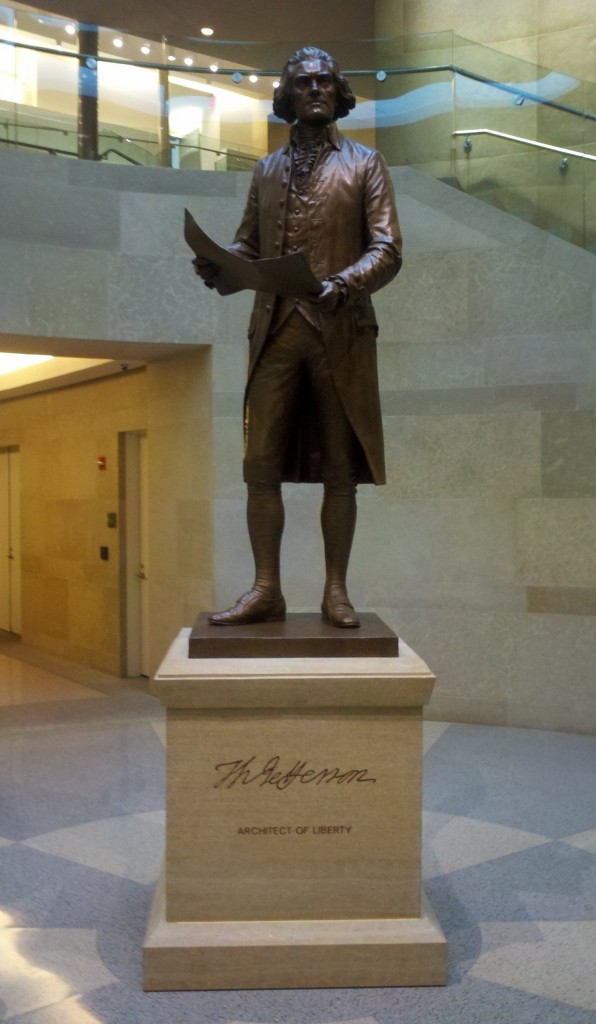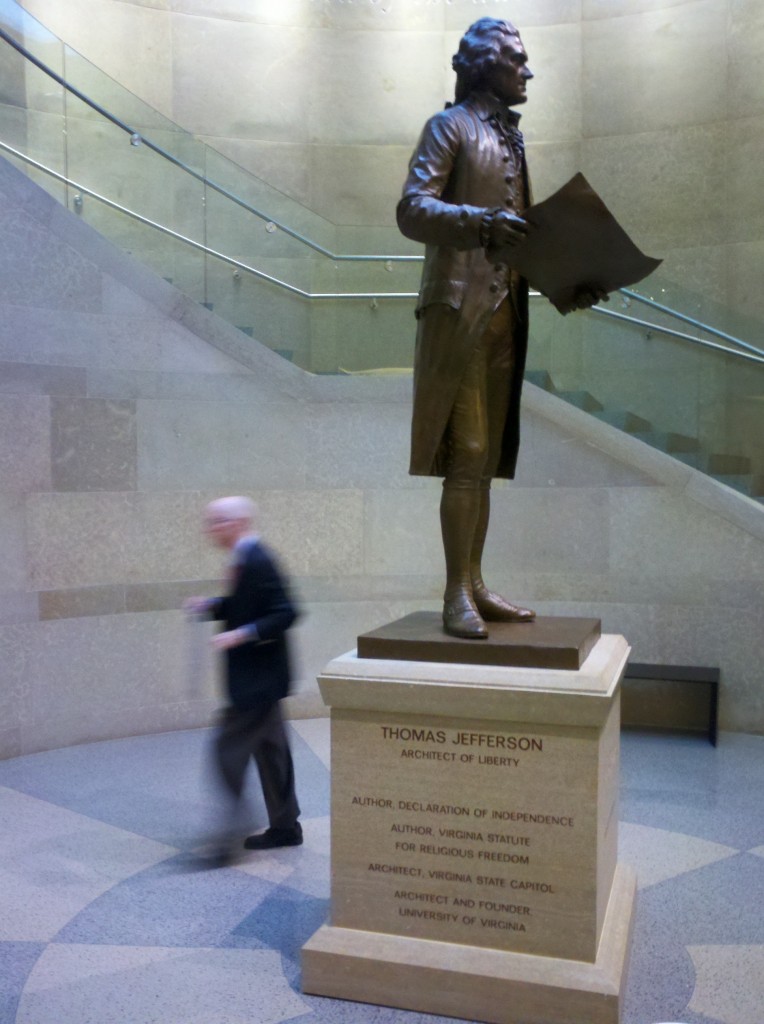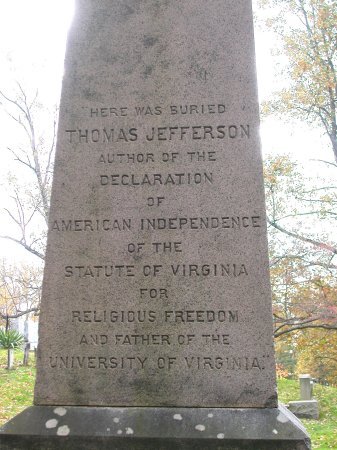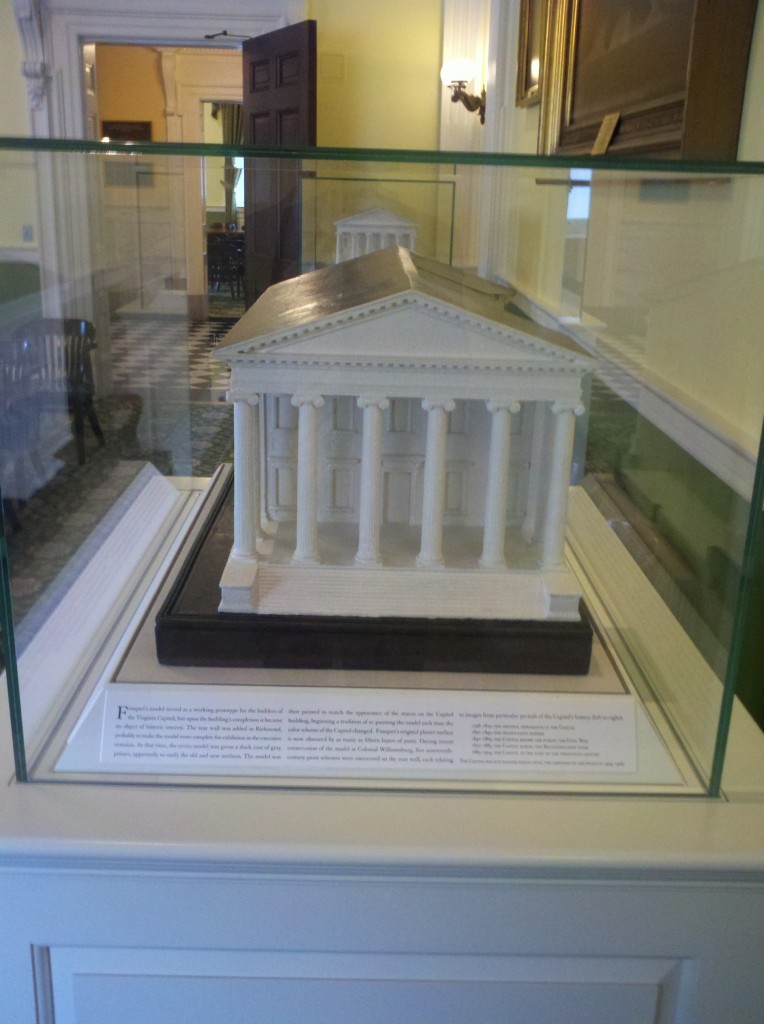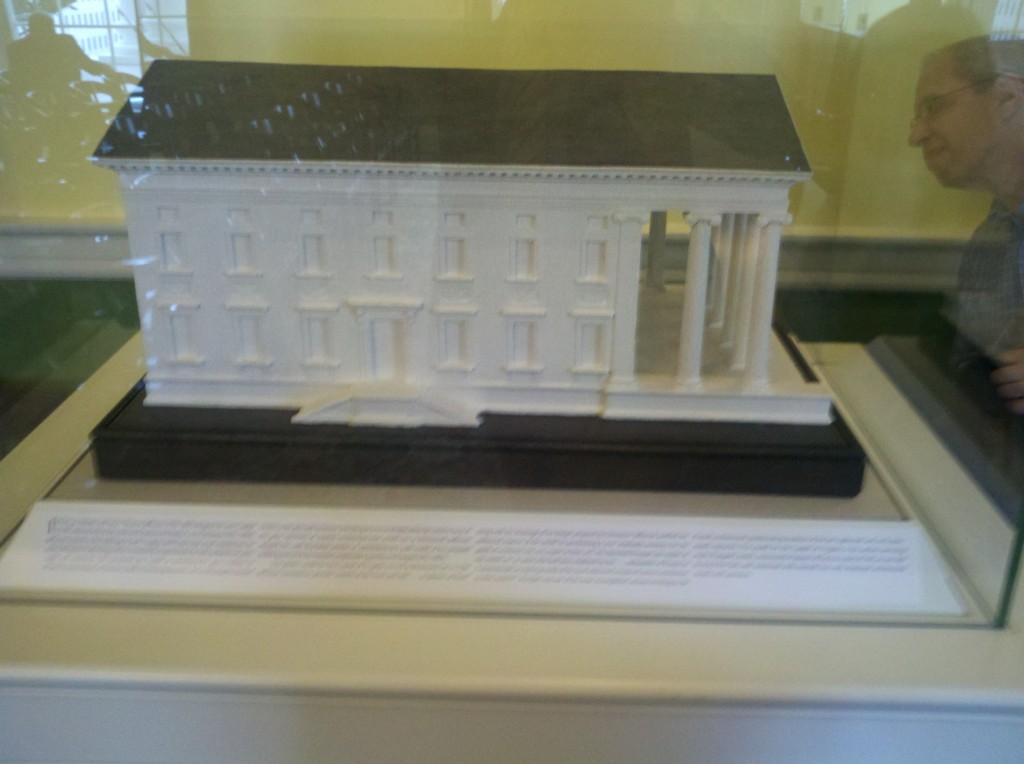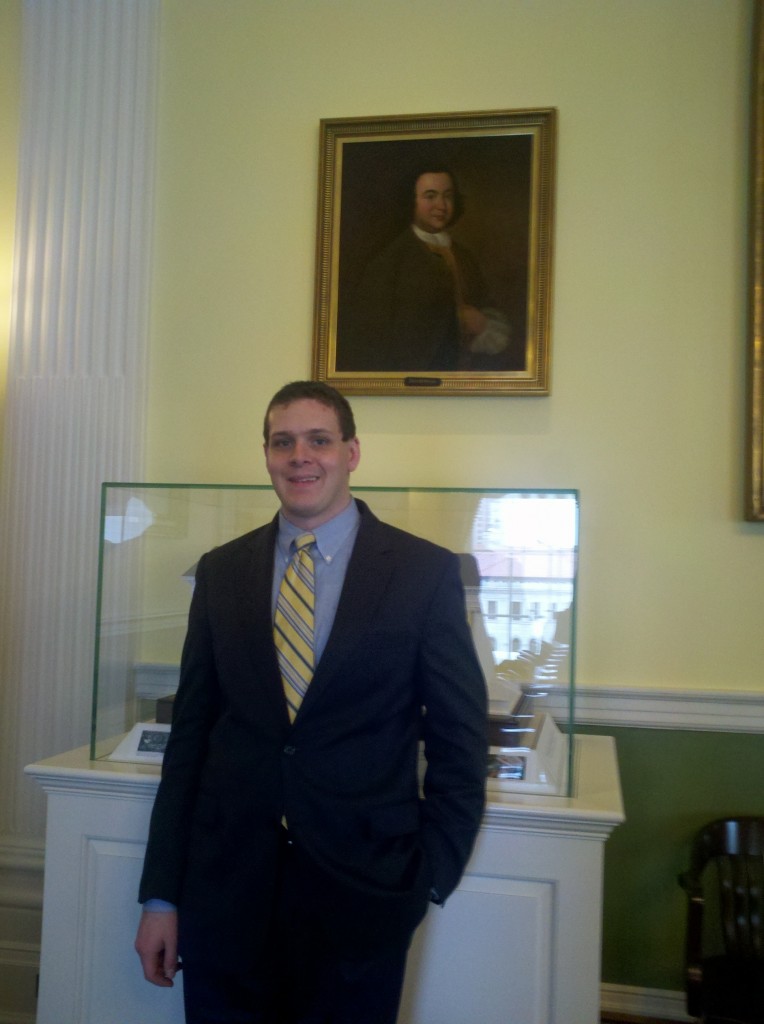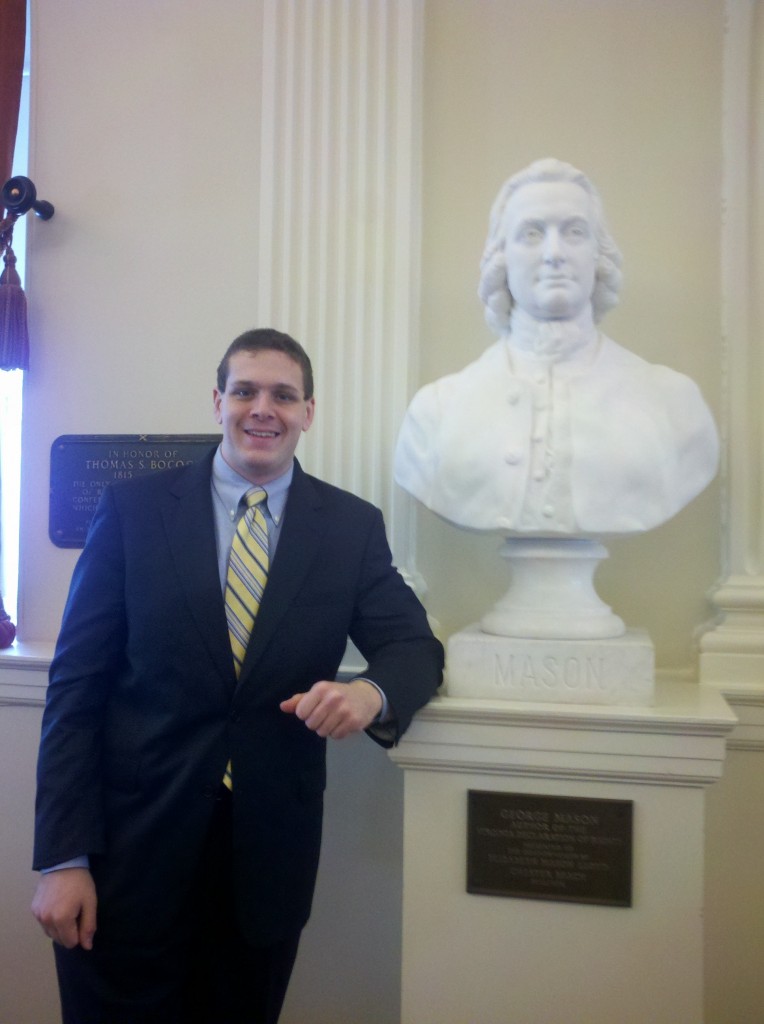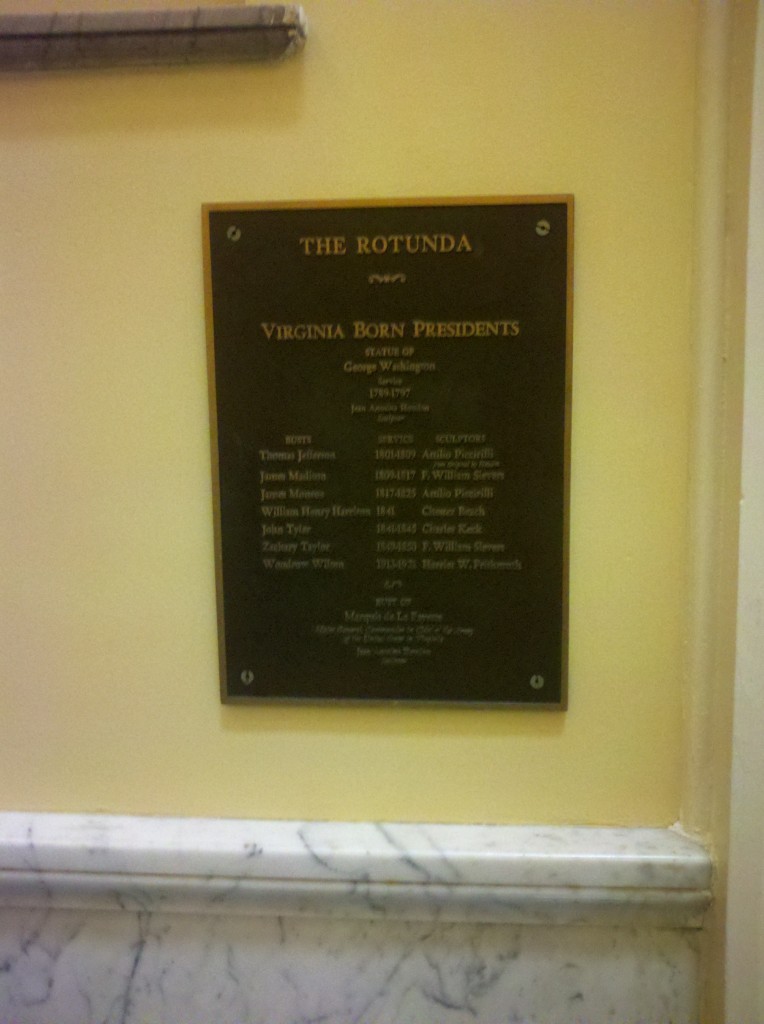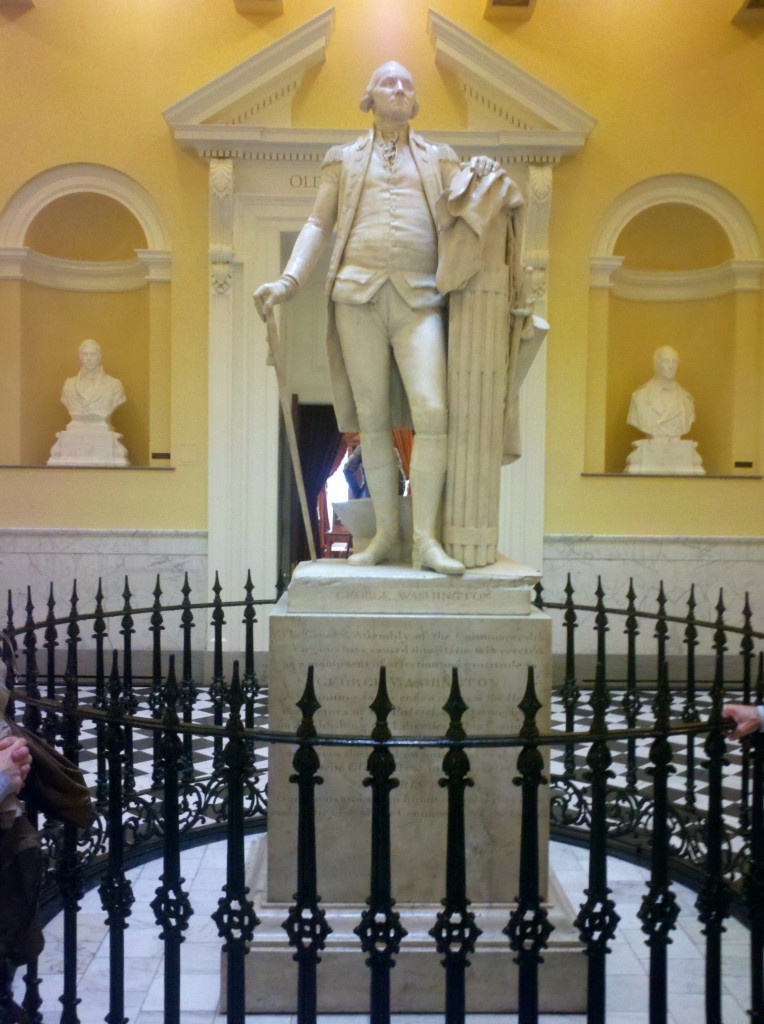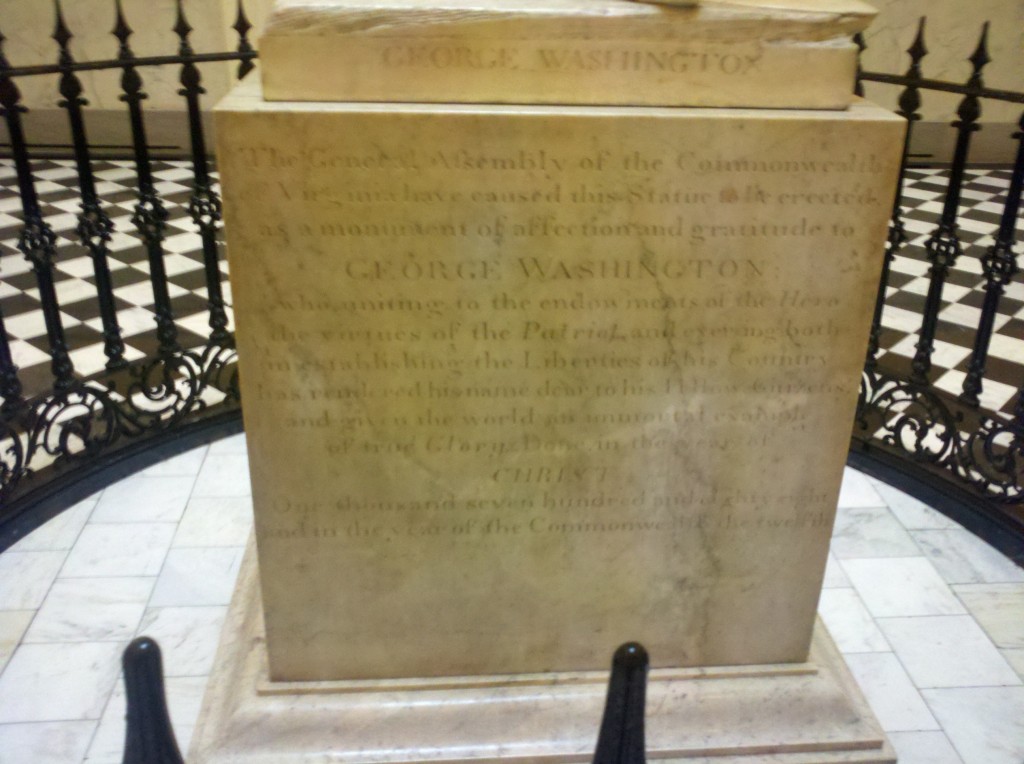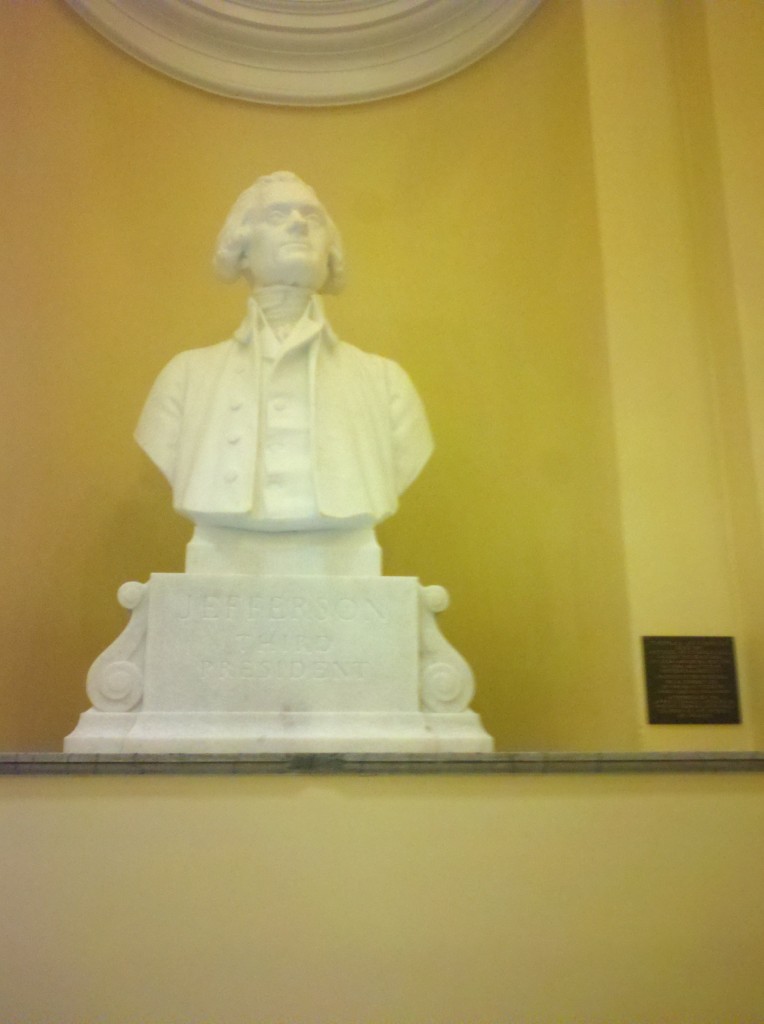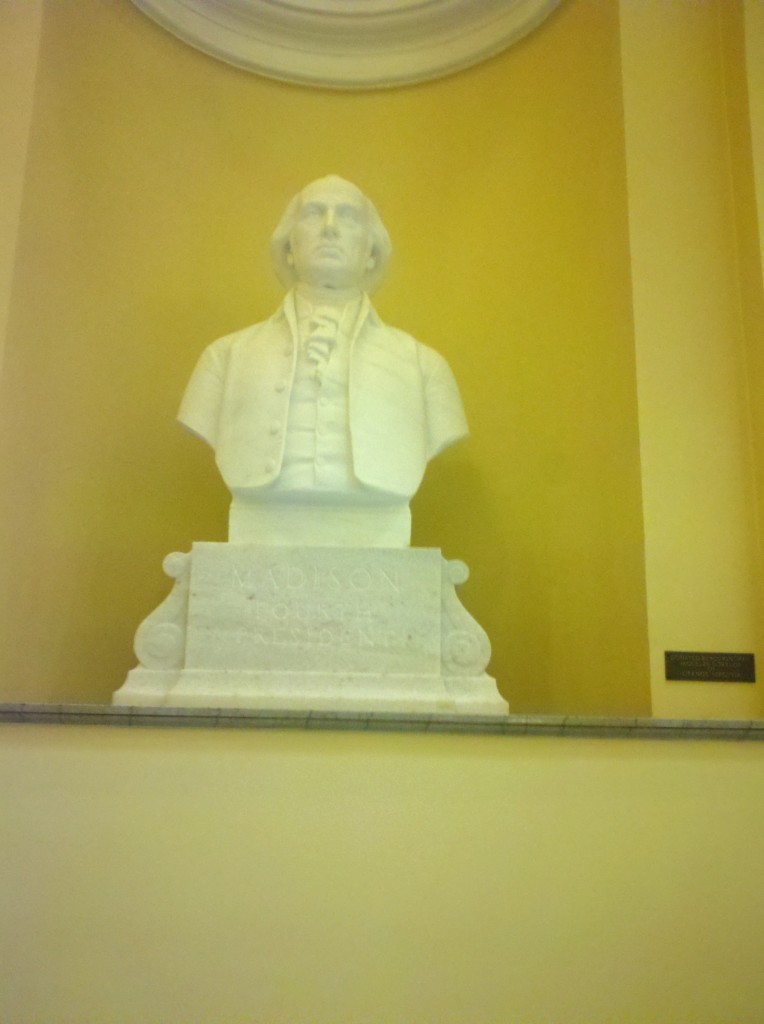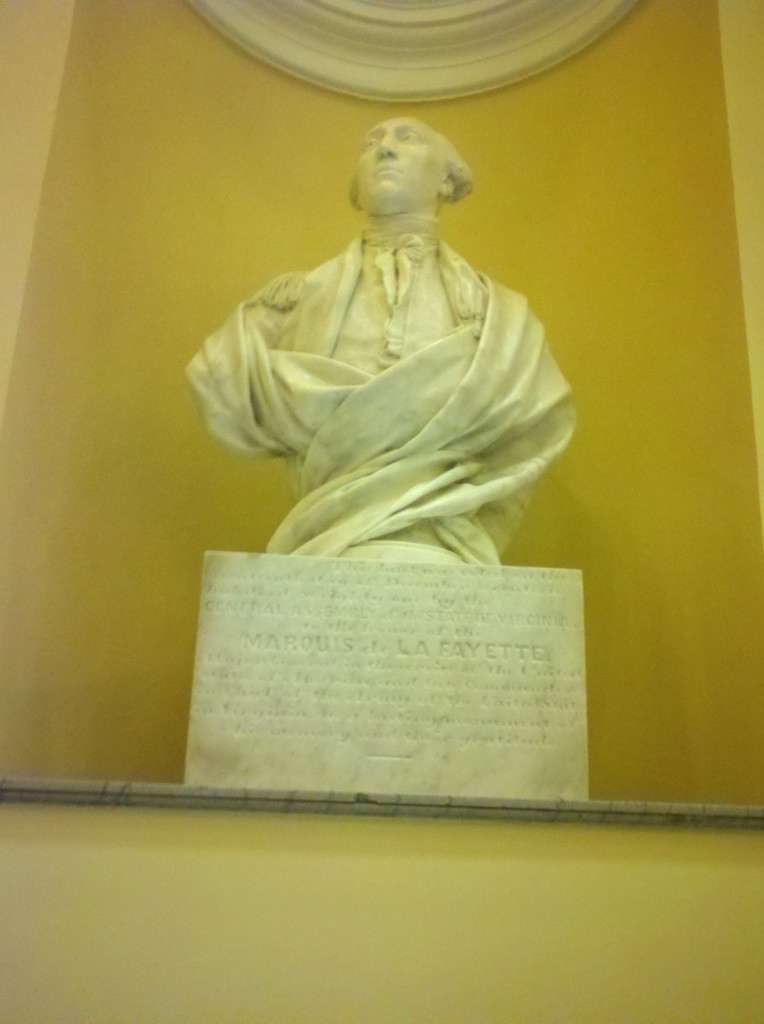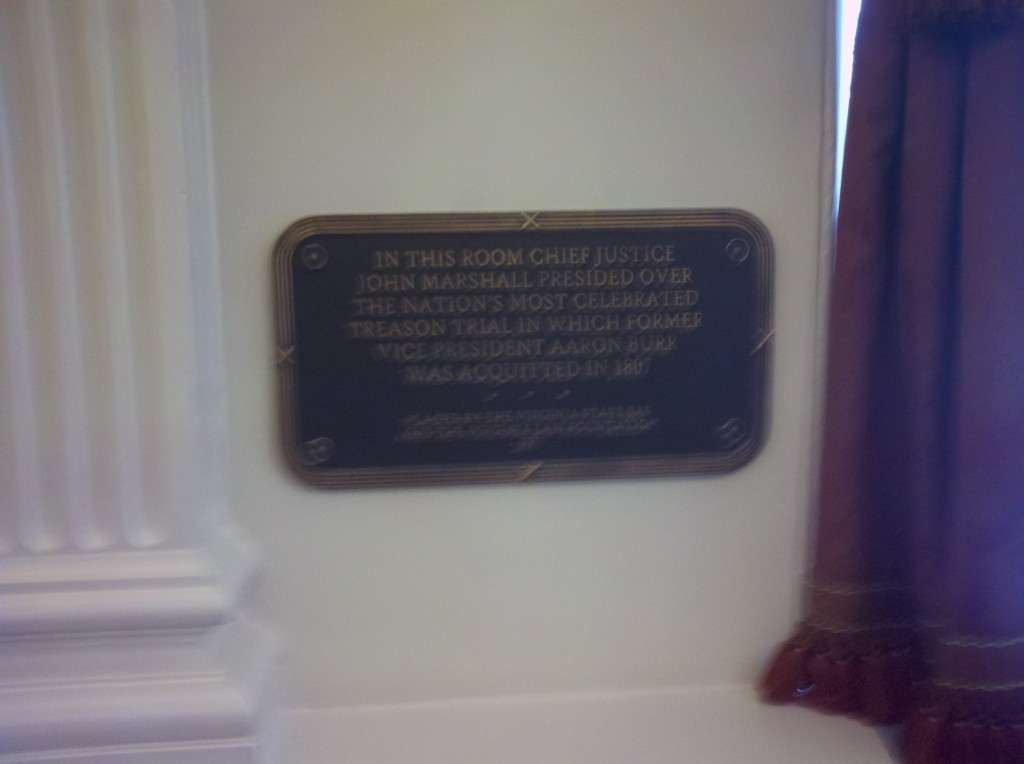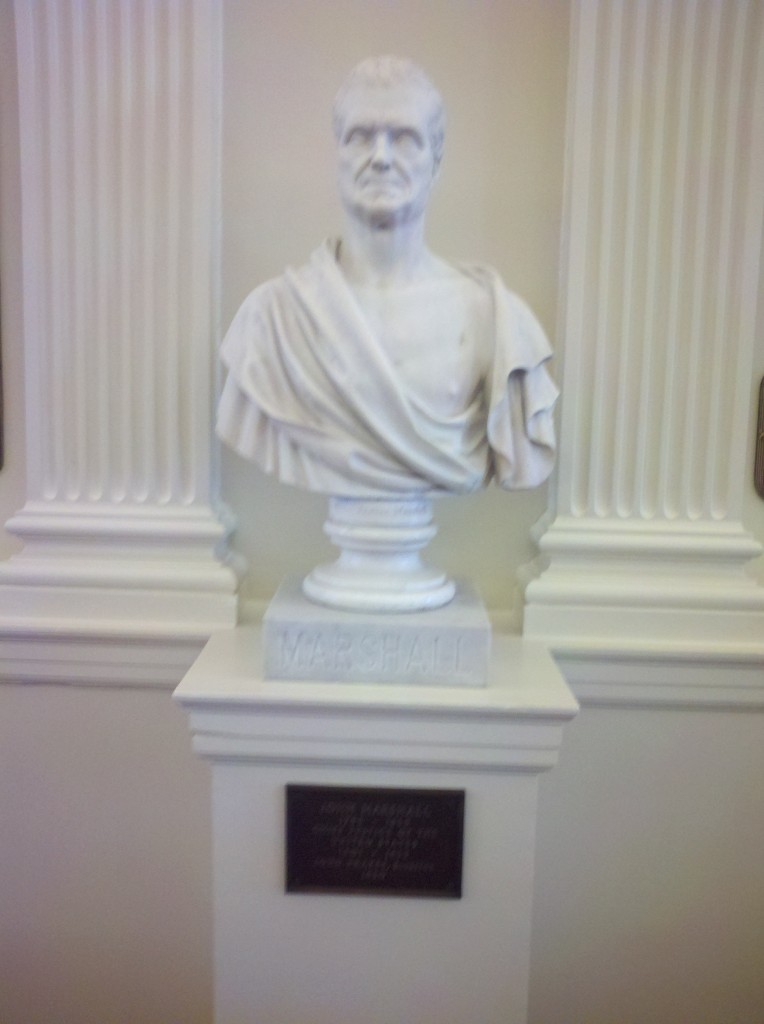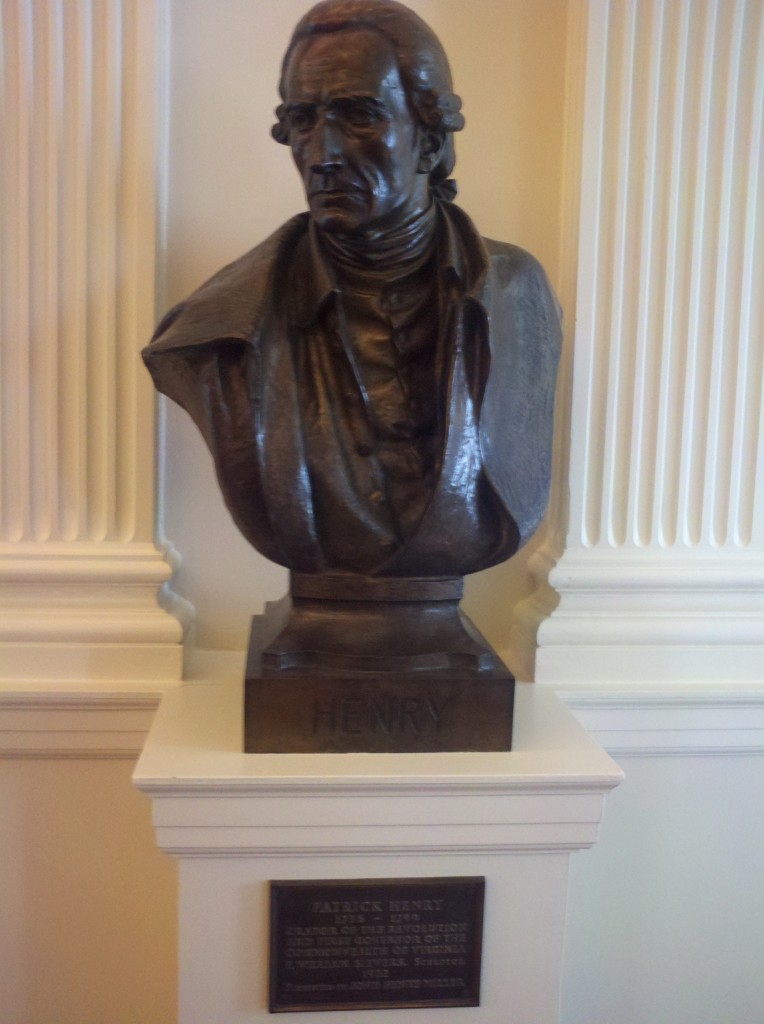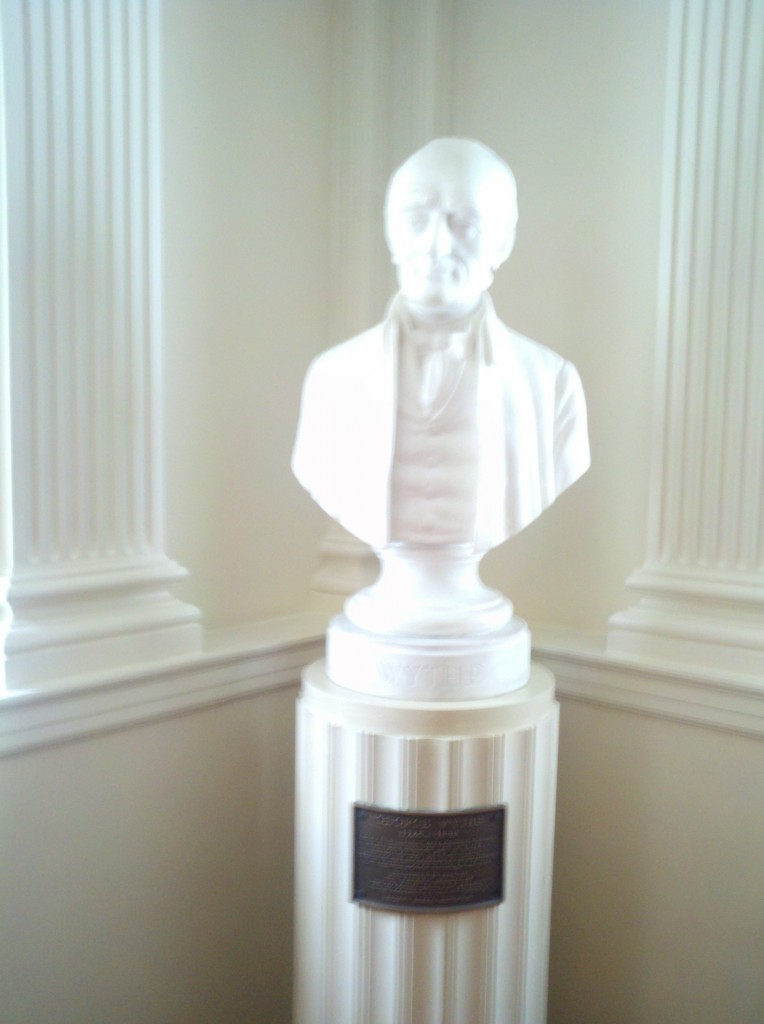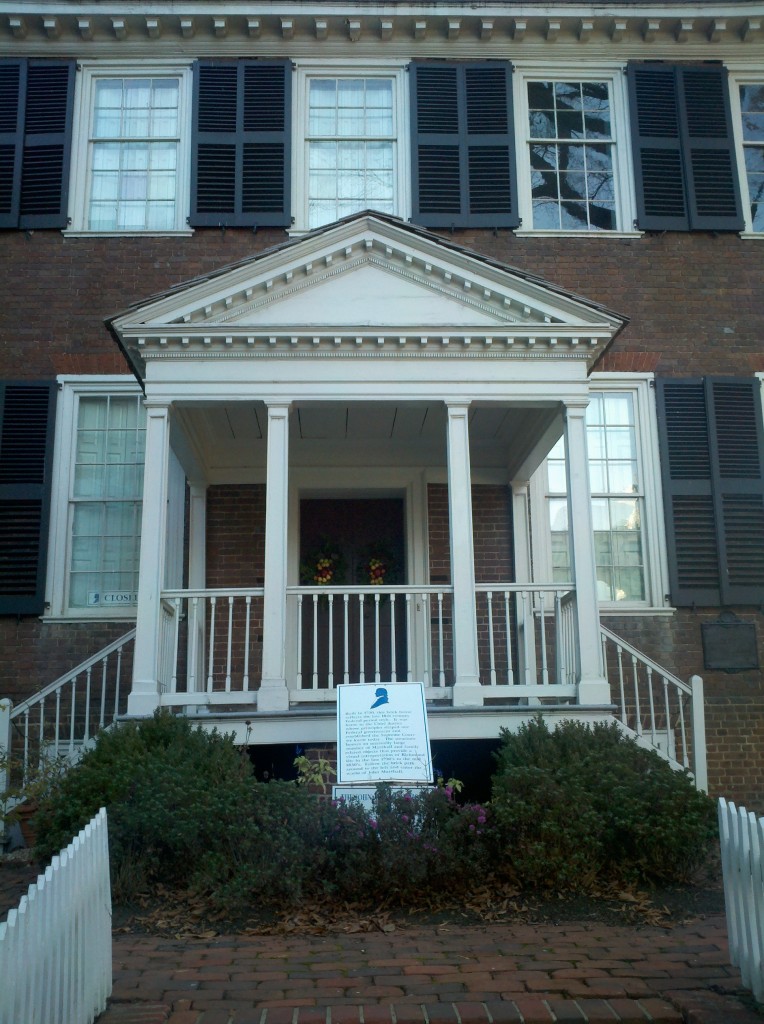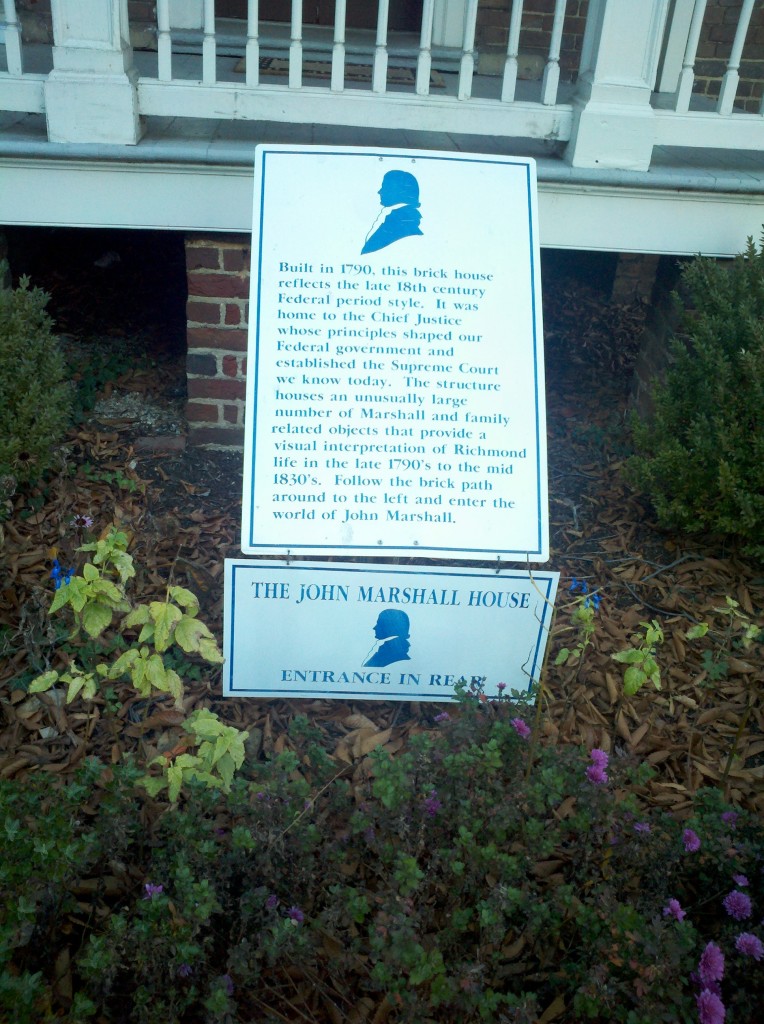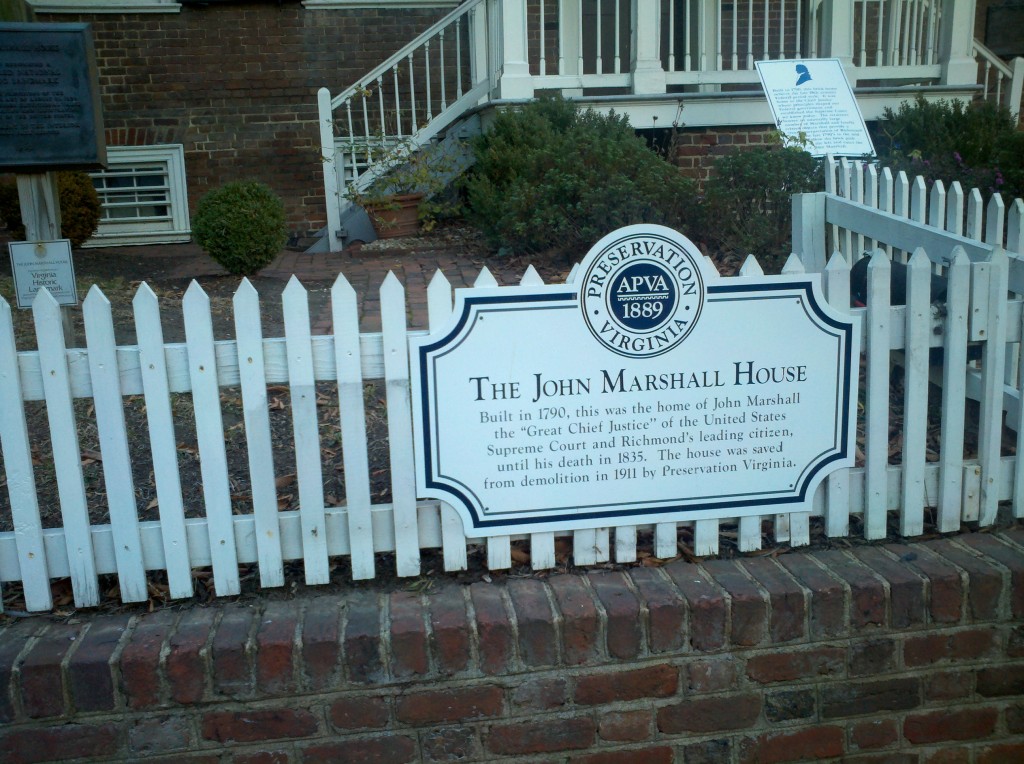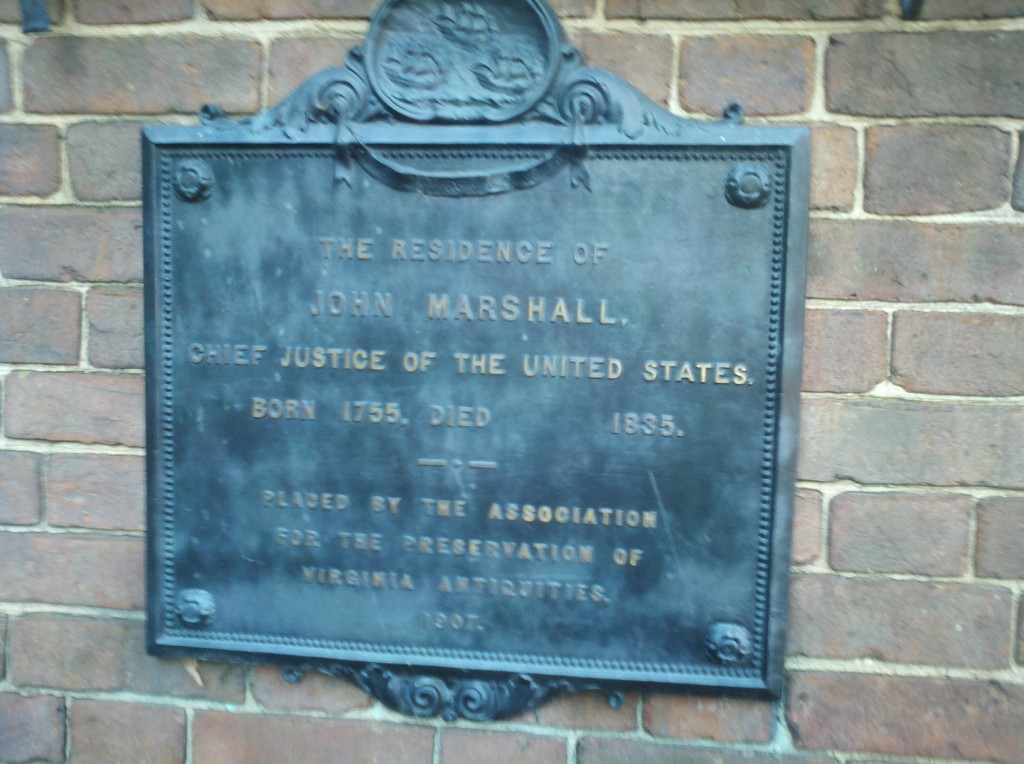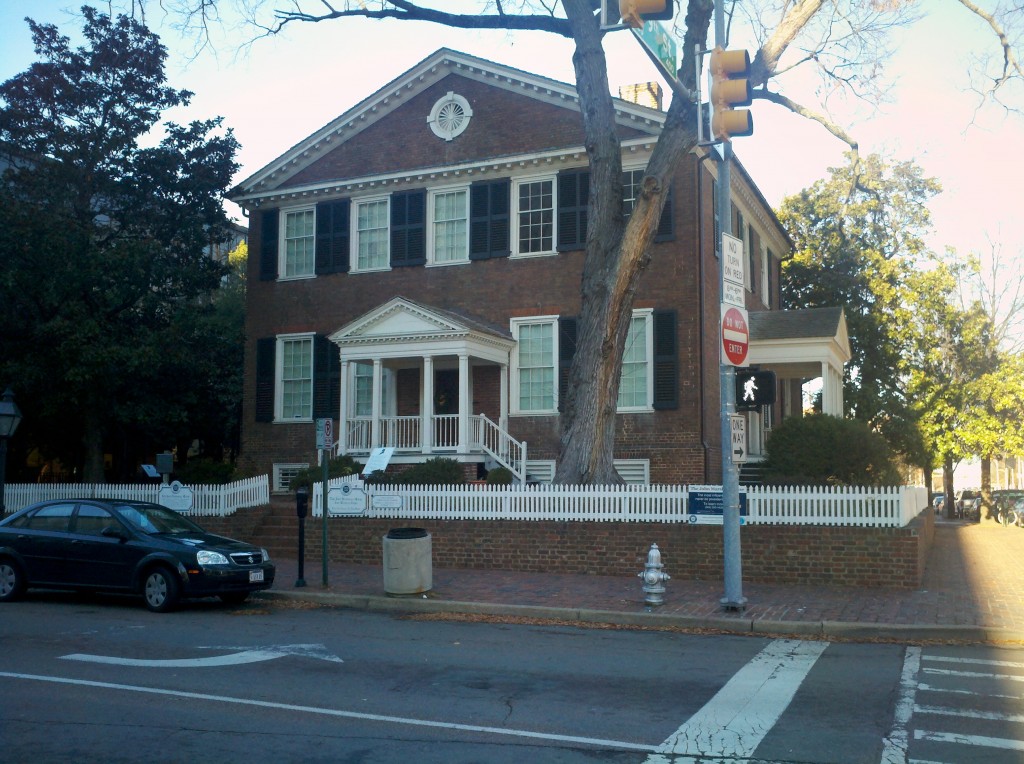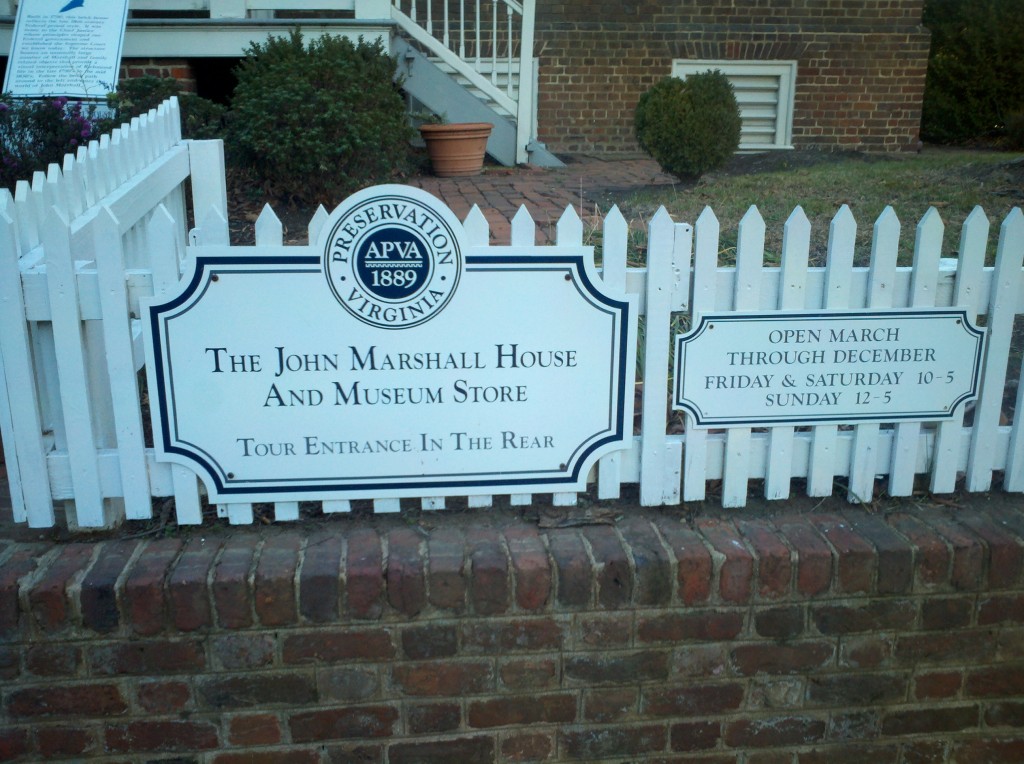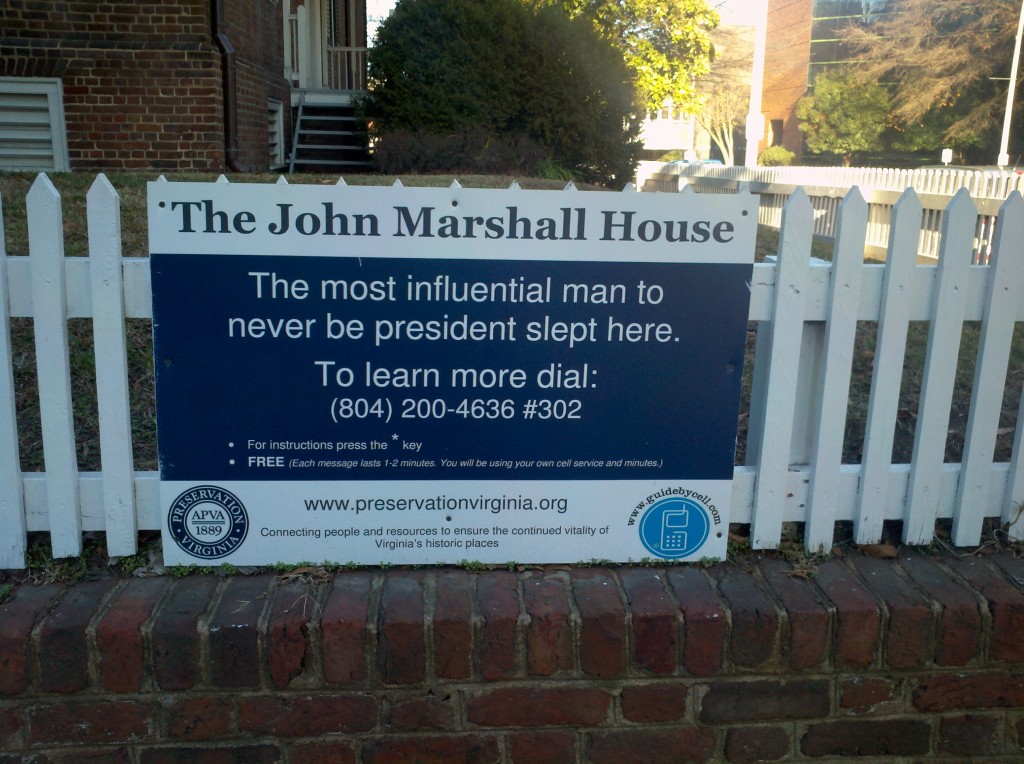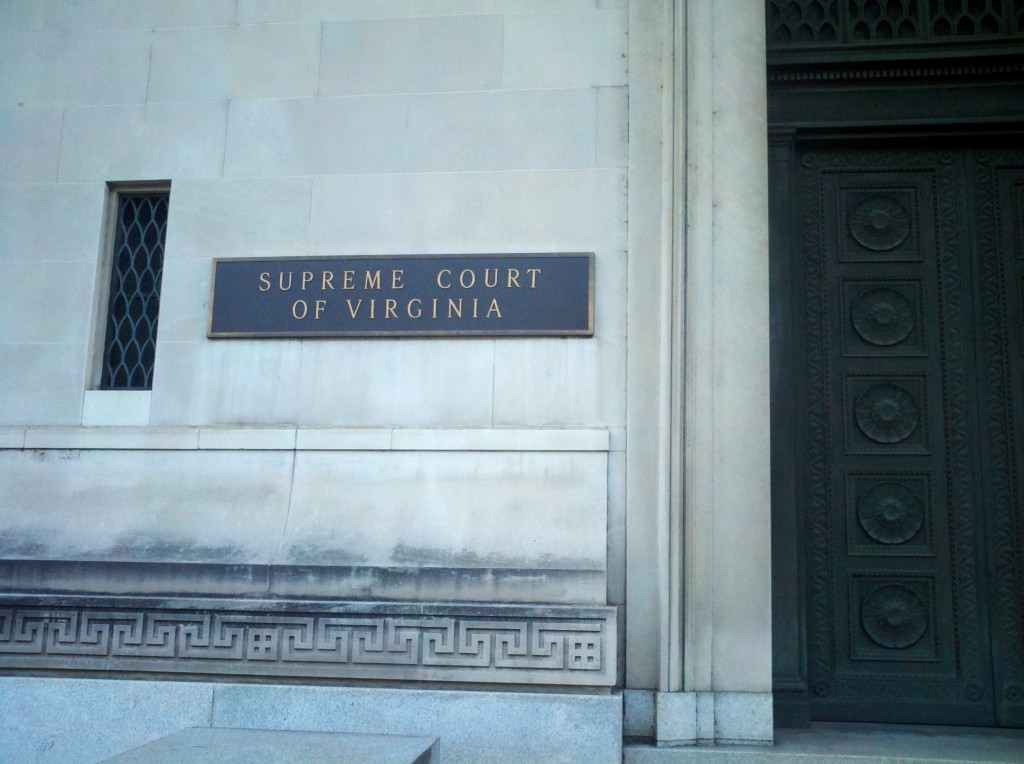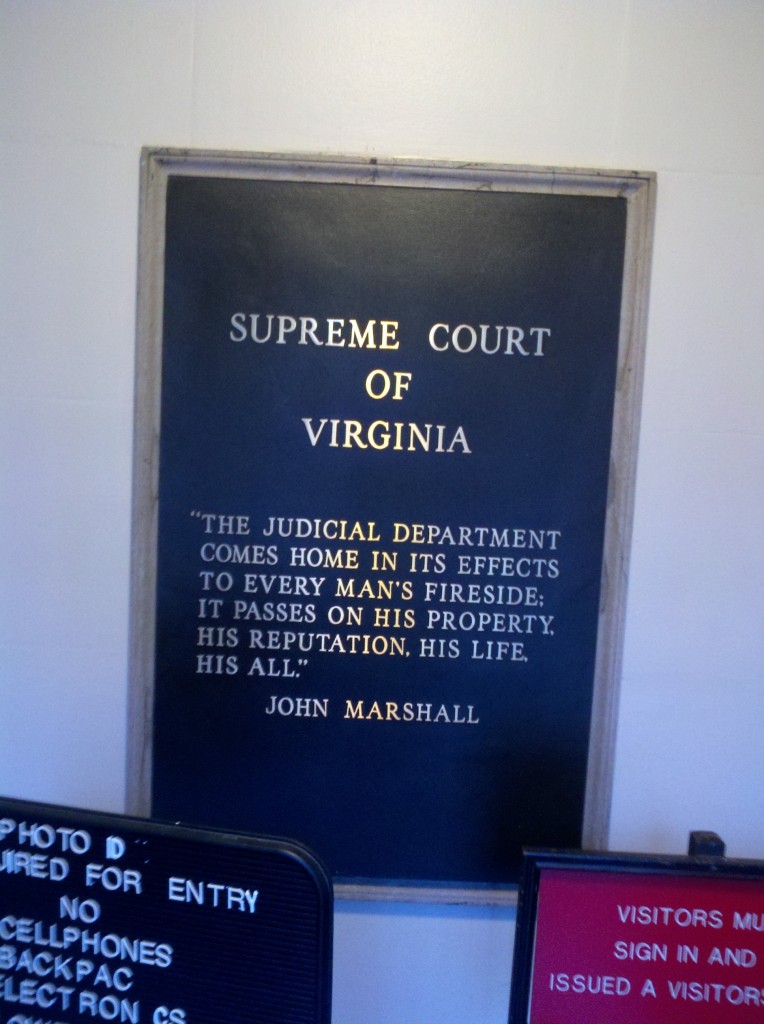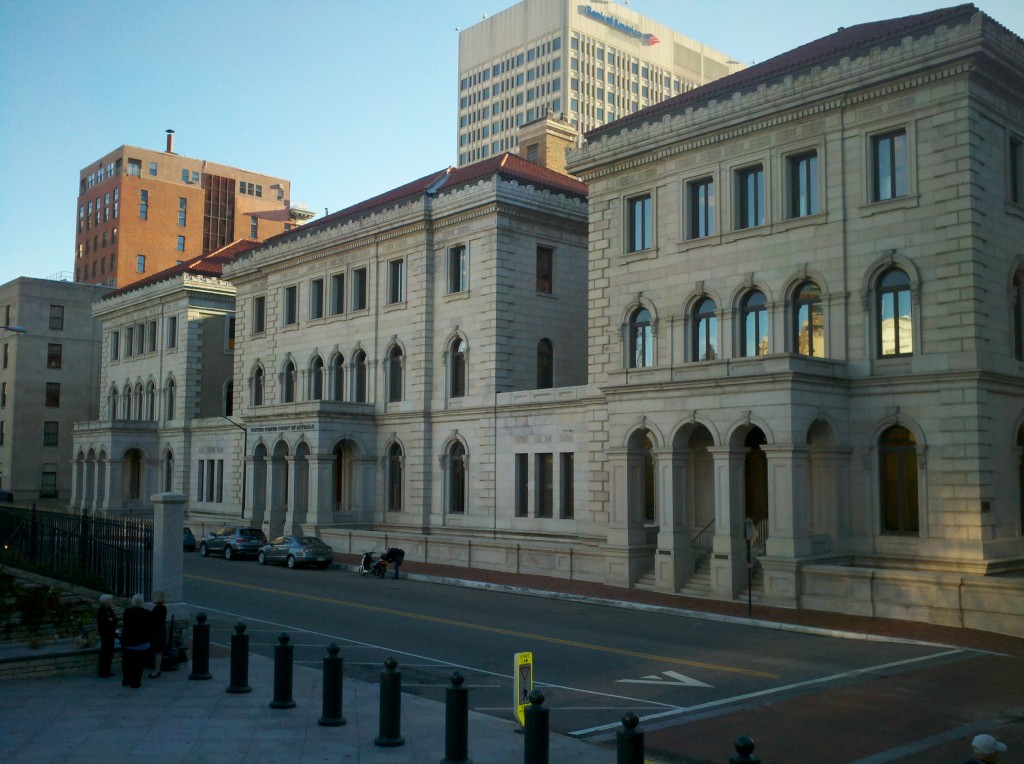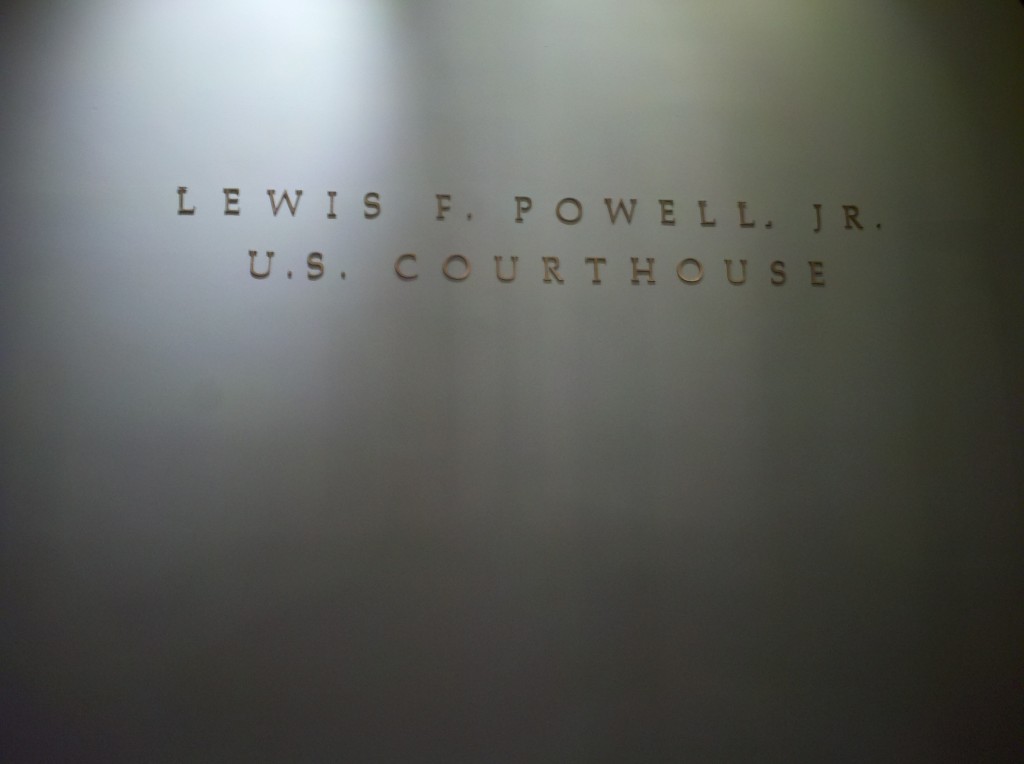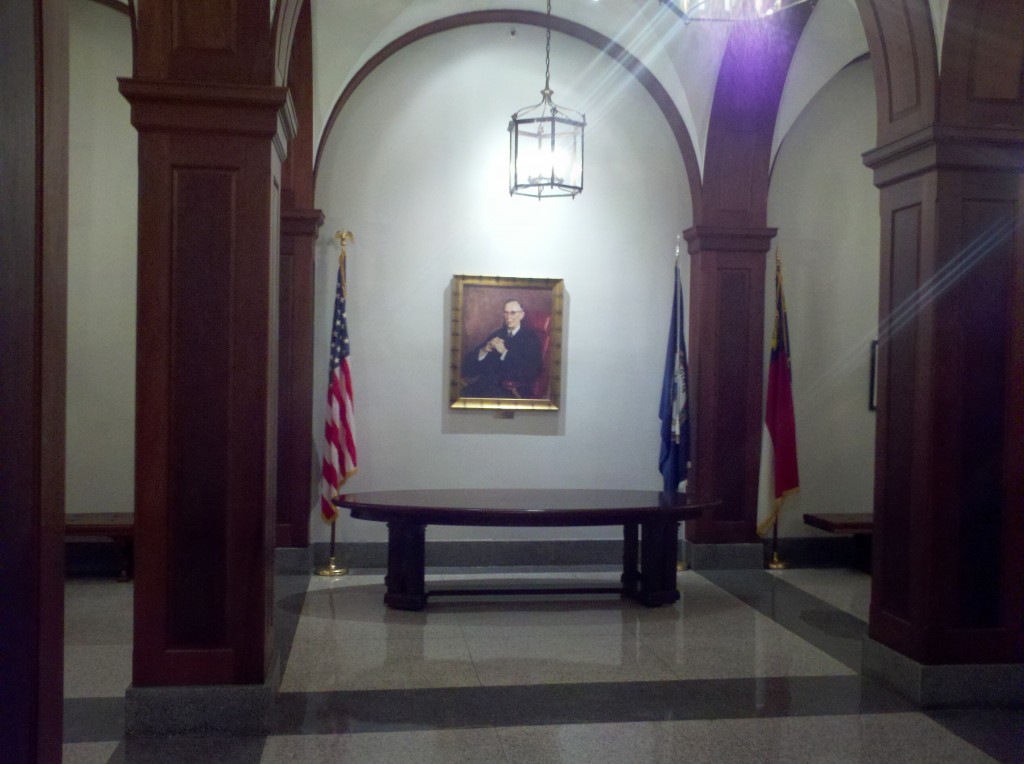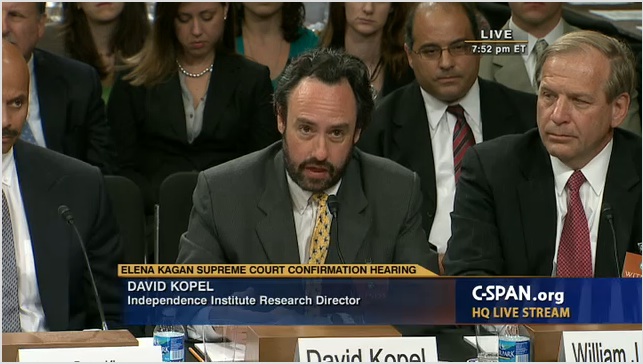I recently took an unexpected trip to Richmond, Virginia to get sworn into the Virginia Supreme Court (not the Supreme Court I was planning on being sworn into that day). During my brief time there, I saw the Virginia Capitol, the Virginia Supreme Court, the U.S. Court of Appeals for the 4th Circuit, as well as the John Marshall House (which billed itself as the home of the “most influential” person never to be President–I disagree).
Here are some photos.
Virginia Capitol
I really enjoyed the Virginia Capitol.
Virginia’s state motto is “Sic Semper Tyrannis,” which means “Always to the Tyrant,” not “Death to the Tyrant.” Though, because John Wilkes Booth screamed this when he assassinated Lincoln, the tyrant line works.
Oh, funny note. Spielberg filmed many of the scenes of Lincoln (which I did not care for) in the Virginia Capitol in Richmond. Oh the irony is way too right.
Though Texas has flown under 6 Flags (Spain, France, Mexico, Texas, United States of America, and Confederate States of America–that’s where the Amusement Park chain 6 Flags got its name from), Virginia has only flown under three: British, United States of America, and Confederate States of America. Pictured here are some of the flags.
The original capital of Virginia was in Williamsburg. The tour guide mentioned that the Virginia state government has been in assembly since the 1600s, and is the oldest continuous legislature in the Western Hemisphere.
This was the second Capitol I’ve been to of defunct republics this year (I visited Austin in October). And speaking of Texas, the Capitol had a bust of Sam Houston who was the first Governor of the Republic of Texas.
There was also an exhibit explaining why Virginia was bigger before the Civil War. Do you know why? Hint: It’s that unconstitutional state formed from Virginia without its consent to the West. I’m looking at you West Virginia.
A recent addition to the Capitol was this nice statue of Thomas Jefferson.
On the side of the statue is a similar inscription as on Jefferson’s tomb in Monticello–this was his own request of how he was to be remembered.
Author, Declaration of Independence. Author, Virginia Statute for Religious Freedom. Architect, Virginia State Capitol. Architect and Founder, University of Virginia.
What did they add? Architect, Virginia State Capitol. That’s not on the original. What’s missing? Oh, 3rd President of the United States.
Here’s the original:
Before his death, Thomas Jefferson left explicit instructions regarding the monument to be erected over his grave. In this document (undated), Jefferson supplied a sketch of the shape of the marker, and the epitaph with which he wanted it to be inscribed:
“…on the faces of the Obelisk the following inscription, & not a word more:
Here was buried
Thomas Jefferson
Author of the Declaration of American Independence
of the Statute of Virginia for religious freedom
Father of the University of Virginia“because by these,” he explained, “as testimonials that I have lived, I wish most to be remembered.”
I didn’t realize that Jefferson worked with an Architect, while in France, to design the Virginia Capitol. One of the Capitol’s most treasured possession is a model that Jefferson sent over from France to Virginia so the builders would know how to build the Capitol.
There was also a nice portrat of George Mason, the author of the Virginia Declaration of Rights, and the namesake of my law school. Of course I took a picture with him.
And a bust of Mason. I find it fascinating that Mason refused to sign the United States Constitution due to its lack of a Bill of Rights.
In the Rotunda of the Capitol is a hall honoring all of the Presidents from Virginia: Washington, Jefferson, Madison, Harrison, Tyler, Taylor, and (who does not belong in this list) Wilson.
In the center is a fantastic statue of George Washington sculpted by Jean-Antoine Houdon, who also took the life mask of Washington, that is held at Mt. Vernon. The General requested that he should not be depicted in a Roman toga, but wanted to be sculpted in his military uniform. The bundle of sticks to his right has 13 sticks, to represent each colony.
The tour guide mentioned that during the fires at Richmond, towards the end of the Civil War, the state Capitol was ransacked and many people took souvenirs from the Capitol. Yet, no one touched the Washington statue. Virginians, even of the Rebel persuasion, were still fond of the General, it seems.
Here’s Thomas Jefferson:
Here’s James Madison:
In addition to the 6 Presidents was a bust of the Marquis de Lafayette, who was like a son to General Washington. Lafayette sent a key to the Bastille to George Washington after its storming. That key resides in Washington’s home on Mt. Vernon.
The trial of Aaaron Burr, presided over by Chief Justice John Marshall riding Circuit, was held in the Virginia Capitol.
There was also a bust of CJ Marshall. More on the Chief later.
The room also had a bust of Patrick Henry, the great orator of the Revolution.
And George Wythe, the namesake of the William & Mary School of Law, and the teacher of Thomas Jefferson.
And this brings us to the John Marshall House, which unfortunately was closed when I visited (it is only open on Fridays and Saturdays).
I’m just glad the plaque said “Chief Justice of the United States” and not “Chief Justice of the Supreme Court.”
I couldn’t really see much about the house, though there were some quirky, and inaccurate signs about the property. Mostly this sign, which read “The most influential man to never be president slept here.”
Unfortunately, I was not allowed into the Virginia Supreme Court, because the Court was not in session (because the Justices were swearing us in at the Richmond Civic Center). The rest of the building was draped during some construction.
Here are some pics of the Louis Powell, Jr. U.S. Courthouse.
